Getting to Know The Horja Godang Tradition in The Angkola Batak Society - Indonesia
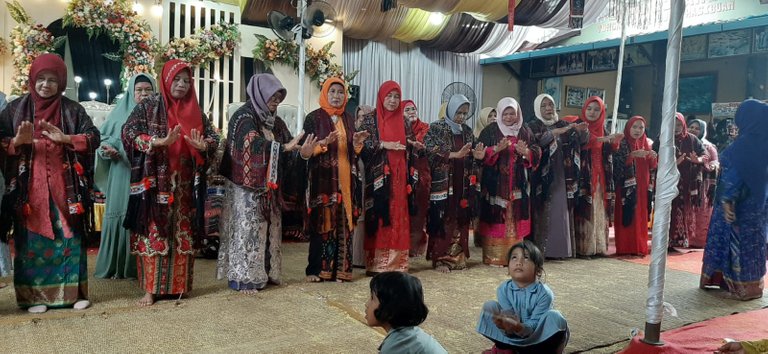
As a country, we can still count Indonesia as a country that has not been independent for a long time. The Indonesian state has not reached 100 years of independence since the proclamation was made by the first president of Indonesia. However, since centuries ago in Indonesia there has been an advanced civilization that was created. The state of Indonesia was once parts of a small kingdom that already had its own civilization and culture.
The culture and customs are still preserved and maintained by several ethnic groups in Indonesia. One of the ethnic groups in Indonesia that still preserves its culture is the Angkola Batak ethnic group in North Sumatra. At first, the Angkola Batak ethnic lived and thrived in the South Tapanuli area and along with the times and humans were looking for life elsewhere. The Angkola Batak ethnicity has spread to various regions in North Sumatra and Indonesia.
We can see the application of customs and culture of the Angkola Batak ethnic in various activities or events such as when entering a new home, birth of children, marriage and also death warnings. Last month, I had the opportunity to attend the Horja Godang traditional event from my cousin's wedding in Rantau Prapat. The families of the two brides are from the Angkola Batak ethnic group who highly respect customs and Horja Godang must be carried out by the family.
For your information, in the Angkola Batak ethnic group, each person is grouped according to categories, namely "King Adat", Suhut, Kahanggi, Mora, and Anak Boru. Raja Adat is an elder customary leader and is always asked for his advice and policies. Suhut is the party organizer or the host party. Kahanggi is the brother of the clan from the father's line. Mora is a brother from the wife's side (in-law's side). Boru's son is the sister of the father's lineage. If Suhut becomes the party organizer, then Anak Boru will be the party in charge of cooking or kitchen activities. The uniqueness of this family system makes each ethnic Batak will be part of one of the categories when every traditional event.
Horja Godang
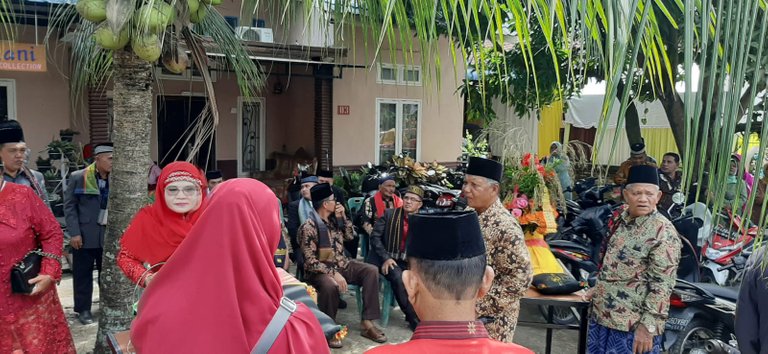
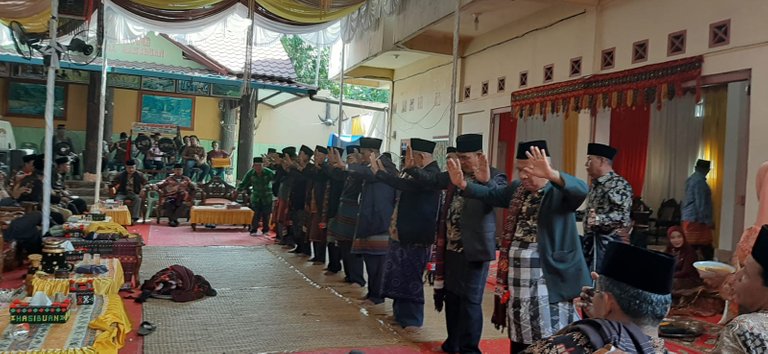
Horja Godang comes from two words Horja which means party and Godang which means big. It means Horja Godang is a big party. Ethnic Batak is a family that has a family name or clan that must be included in each name. Ethnic Batak marriages are not only marriages between women and men, but marriages between clans A or clan B. For example, when a Batak woman with the clan "Lubis" marries a Batak man with the clan "Siregar" it means the entire clan "Lubis" and “Siregar” have become brothers. Many people say, all Batak people are brothers because of the relationship and ties of this clan.
Horja Godang has a very long and tiring series of activities. The first series and is a condition for land manalpokkon (or slaughtering buffalo and cows for sacrifice). The goal is to slaughter buffalo and cows for a smooth and successful event, besides that beef and buffalo will be cooked and consumed together at this party.
I was on the bride's side and this Horja Godang was carried out by the groom's side. That is, the groom's party as "Suhut" and I become the "Mora". Both couples were married a month ago before this Horja Godang at the woman's house and the groom carried out Horja Godang as a form of welcoming the new family created by the sacred bond of marriage. When we got there, we were immediately greeted with ethnic Batak music played with Gondang Semblina, one of the traditional musical instruments that is always present at every Batak traditional event. Gondang Sembilan plays an important role because every stage of the event requires accompanying music to create excitement for the event.
There are many stages of events in Horja Godang, I cannot explain one by one because of the limitations of my knowledge and knowledge. The most tedious and tiring part when giving advice by each party of the family group. The delivery of this advice cannot be represented, for example, the customary king is represented by one person but is carried out by every customary traditional king. So, if Horja Godang is attended by 10 traditional kings, you can imagine how long it will take, especially when these old people often talk at length and are not substantial. That's still counting the Indigenous Kings, not to mention Kahanggi, Mora and Anak Boru of course it will be very tiring.
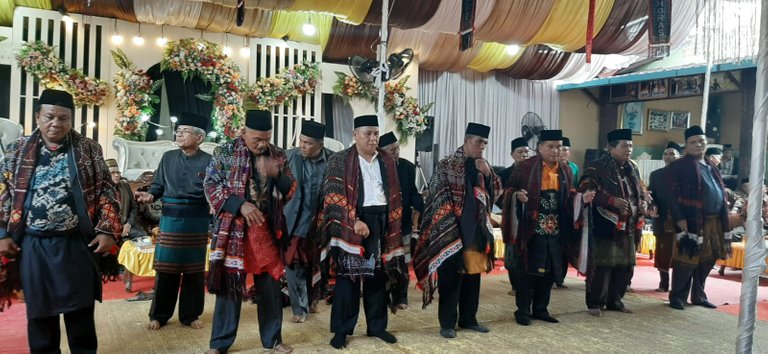
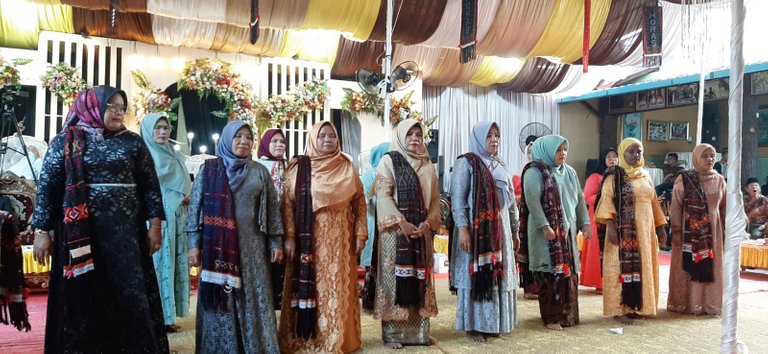
However, the most enjoyable part of this Horja Godang event is the shipyard monitor. The Monitoring Shipyard is carried out after the advice from each family group has been completed. For example, when we from the Mora side have all given advice or messages, then the music is Gondang Sembilan and we will dance Tor-tor with all the Mora parties, the temperature and the bride and groom. As explained by Raja Adat, the tor-tor dances from each family group actually have different movements, but nowadays, because Horja Godang is rarely performed, the dance movements have become uniform and monotonous because the native speakers of the dance are no longer there.
Currently, along with the development of technology and times, the Horja Godang event is an activity that is already rare and in my opinion it needs to be preserved. There are many reasons that make Horja Godang fade away, such as inter-ethnic marriage and also the lack of attachment to a part of the adat group (or dalian na tolu). The Horja Godang event requires collective work from everyone, when making it in a village or village it will be easier because of the cooperative nature of the residents and also a clear understanding of the duties and functions of each person. It is different for the Angkola Batak ethnic who live in the city, which of course has experienced an individualistic process that is unavoidable and natural considering the development of an increasingly modern era.
In addition, the Horja Godang event takes about 1-7 days and will require very large funds. Keep in mind, not everyone has sufficient financial strength to organize it. Ego and prestige are also at stake in Horja Godang, if you make the event just as it is, it will certainly risk the prestige of the family organizers. The duration of the party which is too long also makes the Angkola Batak people reluctant to hold the traditional party.
I am very lucky to still be able to experience or participate in the organization of Horja Godang and to be involved in the process of the event. I don't know, will I be able to participate in Horja Godang in the future or will Horja Godang still be held again in the future? Who knows ?

Call me Isdarmady, because I have a full name that is very long, namely Isdarmady Syahputra Ritonga. I am a head of the family who work as Farmers Vegetables Hydroponic and Consultant Hydroponics, sometimes I also sell coffee from various regions in Indonesia.
I have expertise dispensing coffee with a variety of techniques and tools brewing, because I have the desire to make a coffee shop with hydroponics as centerpieces. Help me realize that dream.
Thanks for read, vote, re-blog and support me in Hive. Maybe god will reward the kindness, let’s success together.
⋆ ᴛʜᴇ ᴘʟᴀᴄᴇ ғᴏʀ sᴏᴜᴛʜᴇᴀsᴛ ᴀsɪᴀɴ ᴄᴏɴᴛᴇɴᴛ ᴏɴ ʜɪᴠᴇ
⋆ sᴜʙsᴄʀɪʙᴇ ᴛᴏ ᴛʜᴇ ᴀsᴇᴀɴ ʜɪᴠᴇ ᴄᴏᴍᴍᴜɴɪᴛʏ
⋆ ғᴏʟʟᴏᴡ ᴛʜᴇ ᴀsᴇᴀɴ ʜɪᴠᴇ ᴄᴏᴍᴍᴜɴɪᴛʏ ᴠᴏᴛɪɴɢ ᴛʀᴀɪʟ
⋆ ᴅᴇʟᴇɢᴀᴛɪᴏɴ ʟɪɴᴋs 25 ʜᴘ⇾50 ʜᴘ⇾100 ʜᴘ⇾500 ʜᴘ⇾1,000 ʜᴘ
This is very interesting to see friends, in other places we can see other cultures.
I like to see it.
thank you for stopping by @jasonmunapasee
This is an interesting custom, and also a good post
thank you for stopping by @akhyar23